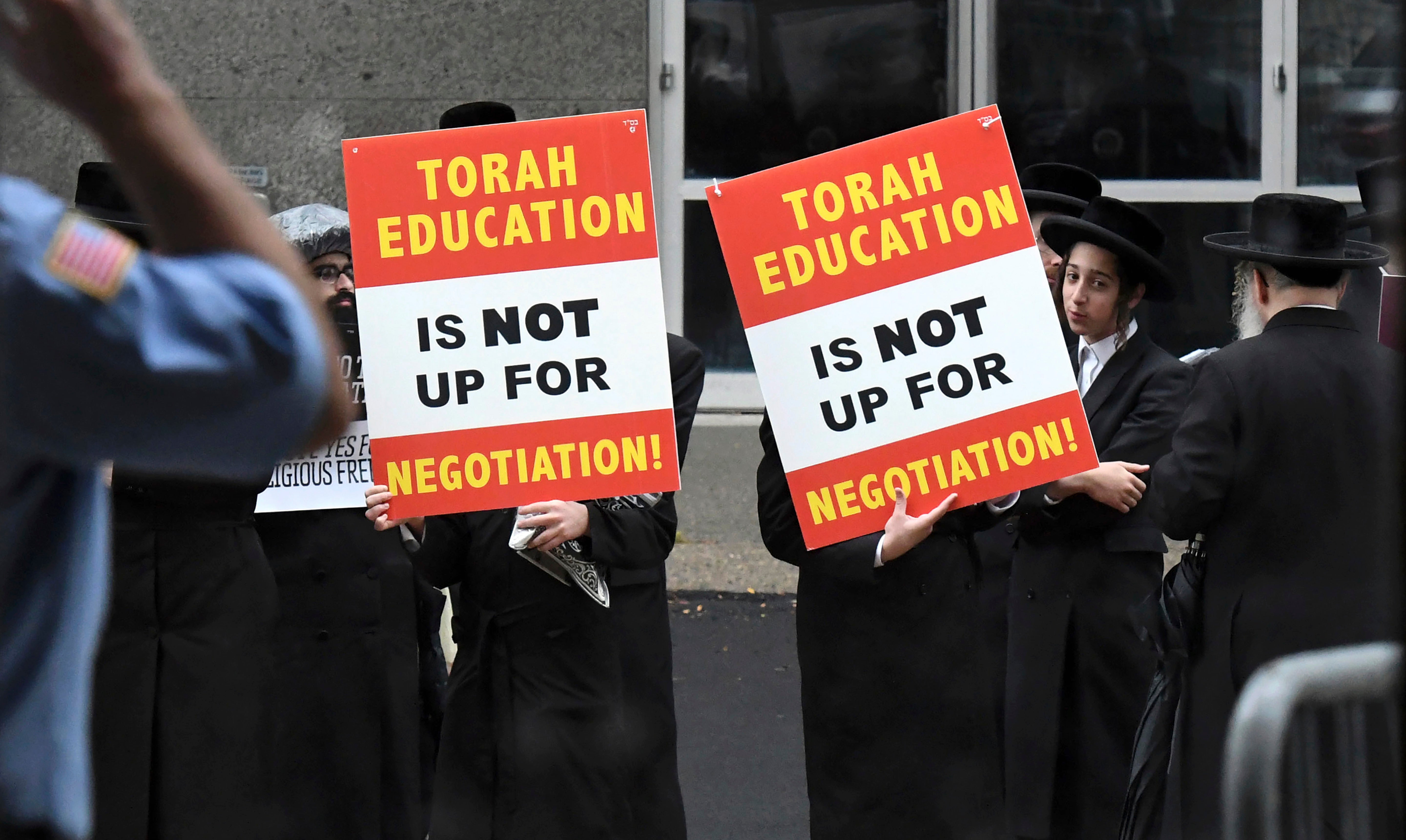NYC school officials say yeshivas run by Hasidic community fail to teach students in core subjects
Eighteen private Jewish schools run by New York City’s politically powerful Hasidic community deprived thousands of students the required secular education in English, math, science and social studies

Your support helps us to tell the story
From reproductive rights to climate change to Big Tech, The Independent is on the ground when the story is developing. Whether it's investigating the financials of Elon Musk's pro-Trump PAC or producing our latest documentary, 'The A Word', which shines a light on the American women fighting for reproductive rights, we know how important it is to parse out the facts from the messaging.
At such a critical moment in US history, we need reporters on the ground. Your donation allows us to keep sending journalists to speak to both sides of the story.
The Independent is trusted by Americans across the entire political spectrum. And unlike many other quality news outlets, we choose not to lock Americans out of our reporting and analysis with paywalls. We believe quality journalism should be available to everyone, paid for by those who can afford it.
Your support makes all the difference.Eighteen private Jewish schools run by New York City's politically powerful Hasidic community deprived thousands of students the required secular education in English, math, science and social studies that they need to function successfully outside their religious enclaves, according to findings from an eight-year investigation by New York City school officials.
The eight-year investigation — which critics say was long delayed because of politics — concluded that many of the religious schools, or yeshivas, were not providing “substantially equivalent instruction” in core subjects as do public schools — as mandated by state law.
In a letter to at least one school, NYC schools Chancellor David Banks expressed concern that students were not being instructed in key subjects “sufficient to prepare them for their futures.”
A review of more than two dozen yeshivas, which receive hundreds of millions public funding, determined that only seven of those schools were in compliance with state rules.
The probe was sparked by complaints by a former student who said he was not provided with the schooling necessary to navigate the outside world.
That prompted a group called Young Advocates for a Fair Education to call for the city’s Department of Education to launch an investigation. City officials began its inquiry in 2015.
But the investigation was conducted in fits and starts, as Hasidic leaders used political muscle to push back against any intrusions into their community, which is concentrated in the Brooklyn neighborhood of Williamsburg.
Hasidic Jews comprise one movement of the Orthodox Judaism. And while the roughly 200,000 Hasidic Jews in New York City represent just a fraction of the city’s Jewish population, they have amassed considerable influence within the city’s power structure because of the community’s penchant for voting as a bloc.
“We hope that the completion of this investigation compels the city and Mayor Eric Adams to act on behalf of thousands of students who are being deprived of their right to a sound basic education,” said the group’s executive director, Beatrice Weber.
But Weber suggested some of the schools deemed compliant were not reviewed adequately and that students in those schools “will continue to be deprived of a basic education.”
Richard Bamberger, a spokesman for Parents for Educational And Religious Liberty in Schools, said parents send their children to yeshivas because of the moral and religious approach taken by the schools.
“They will continue to do so, regardless of how many government lawyers try to insist that yeshiva education is best measured by checklists they devise rather than the lives yeshiva graduates lead,” he told the New York Daily News.
City school officials said the bulk of schools it visited were cooperative, while a small number of schools were less so.
“For any school found to not be substantially equivalent,” NYC schools spokesperson Nathaniel Styer said in a statement, “the DOE stands ready to support the school to becoming substantially equivalent.”
The schools that failed to provide the necessary instruction must draft a remediation plan and have as long as two years to put it in place.
“Our goal is to educate children, not punish adults,” Styer said.
Because Saturday is a day of Sabbath for many Jews, spokespeople for various groups could not be reached.
The findings come amid a push to strengthen oversight of the state's 1,800 private and religious schools, following a New York Times investigation published last fall that exposed how students at Hasidic schools were denied basic education in crucial subjects.
But the new state rules were pared back by a judge earlier this year after a lawsuit was brought by ultra-Orthodox Jewish schools. The judge ruled that parents cannot be required to pull their children from private schools that fail to meet state-designated standards.